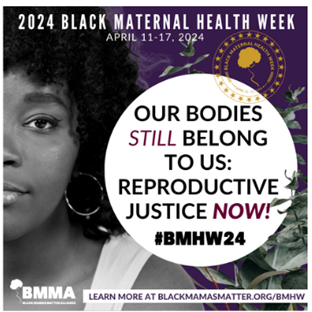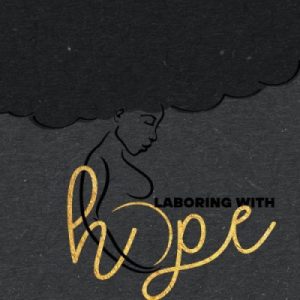
Articles
"Black Nurses in the Home is Working": Advocacy, Naming, and Processing Racism to Improve Black Maternal and Infant Health. Maternal and Child Health Journal, 2022.
Hear Her - Resources for American Indian and Alaska Native (AIAN) People. CDC’s Reproductive Health Hear Her campaign page. CDC’s Hear Her Campaign seeks to raise awareness of urgent maternal warning signs during and after pregnancy and improve communication between patients and their healthcare providers.
Birthing while Black: Examining America's Black Maternal Health Crisis: Hearing before the Committee on Oversight and Reform, House of Representatives, One Hundred Seventeenth Congress, first session, May 6, 2021. U.S. Government Documents.
The Efficacy of Using Peer Mentors to Improve Maternal and Infant Health Outcomes in Hispanic Families: Findings from a Randomized Clinical Trial. Maternal and Child Health Journal, 2018.
Preterm Birth among the Hmong, other Asian Subgroups and Non-Hispanic Whites in California.
Mass Incarceration and Public Health: The Association between Black Jail Incarceration and Adverse Birth Outcomes among Black Women in Louisiana. BMC Pregnancy and Childbirth, 2019.
Delivering Hope. University of Washington Magazine, 2023. A UW program works to improve maternal health outcomes for Black women and other underserved community members.
Maternal Health in the Transgender Population. Journal of Women’s Health, 2021. As this is a growing field of medicine with limited data available on safety and long-term outcomes, recommendations are for a multidisciplinary team approach to ensure patients' safety and well-being.
EResources
 Pregnant while Black: Advancing Justice for Maternal Health in America. (2023, eBook). In Pregnant While Black, Rainford begins the work of "repairing the damage of the past" with an examination of the conditions that plague Black pregnancies.
Pregnant while Black: Advancing Justice for Maternal Health in America. (2023, eBook). In Pregnant While Black, Rainford begins the work of "repairing the damage of the past" with an examination of the conditions that plague Black pregnancies. Birthing Black Mothers. (2021, eBook). Through cultural critique and in-depth interviews, Nash acknowledges the complexities of Black motherhood outside its use as political currency.
Birthing Black Mothers. (2021, eBook). Through cultural critique and in-depth interviews, Nash acknowledges the complexities of Black motherhood outside its use as political currency. Babylost: Racism, Survival, and the Quiet Politics of Infant Mortality, from A to Z. (2022, eBook). The U.S. infant mortality rate is among the highest in the industrialized world, and Black babies are far more likely than white babies to die in their first year of life.
Babylost: Racism, Survival, and the Quiet Politics of Infant Mortality, from A to Z. (2022, eBook). The U.S. infant mortality rate is among the highest in the industrialized world, and Black babies are far more likely than white babies to die in their first year of life. Birthing Justice. (2023, Documentary). Going behind the statistics and beyond the grief, "Birthing Justice" places Black women at the center of the fight to fix a broken system as they transform the future for all women in this country.
Birthing Justice. (2023, Documentary). Going behind the statistics and beyond the grief, "Birthing Justice" places Black women at the center of the fight to fix a broken system as they transform the future for all women in this country. Laboring with Hope. The Network of the National Library of Medicine (NNLM) Region 5 is offering an opportunity for NNLM members in Region 5 to host a viewing of the 30-minute documentary, Laboring with Hope for their communities. This program is intended to improve awareness of maternal health disparities and create opportunities to share reliable health information.
Laboring with Hope. The Network of the National Library of Medicine (NNLM) Region 5 is offering an opportunity for NNLM members in Region 5 to host a viewing of the 30-minute documentary, Laboring with Hope for their communities. This program is intended to improve awareness of maternal health disparities and create opportunities to share reliable health information.